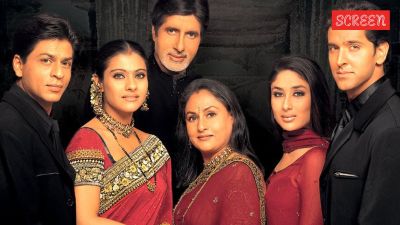This had sparked fears of government overreach. To calm nerves, the then Telecom Minister publicly assured that OTTs would not fall under the definition of telecom services. But, privately, tech companies remained sceptical – feeling that assurances made by the government through media statements did not have the same sanctity as the legal word.

Now, it seems they were right to be concerned. Eight months after the law was passed in Parliament, telecom operators Jio, Airtel, Vi and a lobby group which represents them, have all interpreted that the definition of telecommunication services is in fact broad enough to regulate OTT services. In comments sent to the telecom regulator TRAI for a consultation that will operationalise a part of the new Act, they have asked OTT platforms to require authorisation from the government, as part of what they are pitching as ‘same service, same rules’.
The initial concern has morphed into confusion and all eyes are now on TRAI – whether or not it recommends that OTT platforms should be treated at par with telecom companies.
Telcos assertion regarding inclusion of OTTs in the Telecom Act
In essence, the core argument of telecom companies is this: they spend big money on purchasing spectrum, setting up the physical infrastructure for offering services and need to acquire a licence from the government. OTTs like WhatsApp also offer calling and messaging functions, but they don’t have to purchase spectrum or set up physical infrastructure like telcos have to. This, they claim, disadvantages them, especially when most communication has moved online.
In its submission to the TRAI’s consultation paper on service authorisations, the Cellular Operators Association of India (COAI), which represents the three telecom companies Jio, Airtel and Vi, said: “As per our understanding, OTT Communication services are covered under the new Telecom Act as an access service… We reiterate our view that the players providing OTT communications services should be brought under the licensing framework.
To address the issues of non-level playing field and ensure adoption of principles of “Same Service Same Rule”, these competing and substitutable services should be included under Access Services authorization under the new framework.”
Story continues below this ad
Reliance Jio said that the definition of ‘message’ and telecom service includes all forms of telecommunication services including the communication services provided over the top. “OTT communication service providers are equivalent to access service providers,” Jio said.
Bharti Airtel said that the Telecom Act has a broad definition of ‘telecommunications’, which includes “any sign, signal, writing, text, image, sound, video, data stream, intelligence or information sent through telecommunication”. “It leaves ample room for the inclusion and regulation of OTT communication services under the Act.”
Vi said that while there is no need for a new authorisation, “it would be prudent to increase the scope of access services authorisation to include OTT communication services, which as per our understanding, are covered under the new Telecom Act”.
Telcos’ views and divergences from the government’s earlier assurances
In the Act, telecom services have been defined as: “transmission, emission or reception of any messages, by wire, radio, optical or other electro-magnetic systems, whether or not such messages have been subjected to rearrangement, computation or other processes by any means in the course of their transmission, emission or reception”. And ‘messages’ has been further defined as “any sign, signal, writing, text, image, sound, video, data stream, intelligence or information sent through telecommunication”.
Story continues below this ad
When the Act was tabled in Parliament last year, various stakeholders had raised concerns that this particular definition was broad enough to potentially include OTT communications platforms. However, former telecom minister Ashwini Vaishnaw had, at the time, clarified publicly to the media that OTTs are not under the ambit of the law.
While telecom companies say that not imposing similar rules on OTT platforms was putting them at an economic disadvantage, the argument for not including OTT platforms in the telecom ambit stems from a largely human rights issue, and some technological limitations – if a WhatsApp call was to be treated at par with a regular voice call, the company would have to enable monitoring of these calls because they could be subject to interception requests from the government. This not only raises digital rights-based concerns, but also could be difficult to execute technologically given that WhatsApp’s encryption technology may not allow for interception to happen in the first place.
Other changes in the Telecom Act
While auctions will continue to be the preferred norm of assigning spectrum to entities, but outside of satellite communications, administrative allocation will be done for sectors like metro rails, community radio, defence, railways, and police, among others.
The Act also allows the government to take back spectrum that is unutilised for insufficient reasons and also opens the door for sharing, trading, and leasing of spectrum. Entities will be able to surrender unused spectrum, but will not receive payment from the government for it.
Story continues below this ad
A voluntary undertaking mechanism to facilitate voluntary disclosure of inadvertent lapses and to facilitate compliance has been introduced. A tiered structure for settling disputes arising out of breach of terms and conditions involving an adjudicating officer, designated committee of appeals and the Telecom Disputes Settlement and Appellate Tribunal (TDSAT) on top.
Entities have been mandated to carry out biometric authentication of their users as a measure to curb fraud. The provision has raised concerns about the privacy of users.
The Bill empowers the central and state governments or a specially authorised officer to seek interception, disclosure, and suspension powers in case of a public emergency or interest or safety. Press messages, meant for publication in India and of correspondents accredited to state or central governments, have been exempted from interception, although they can be intercepted for national security reasons.

































